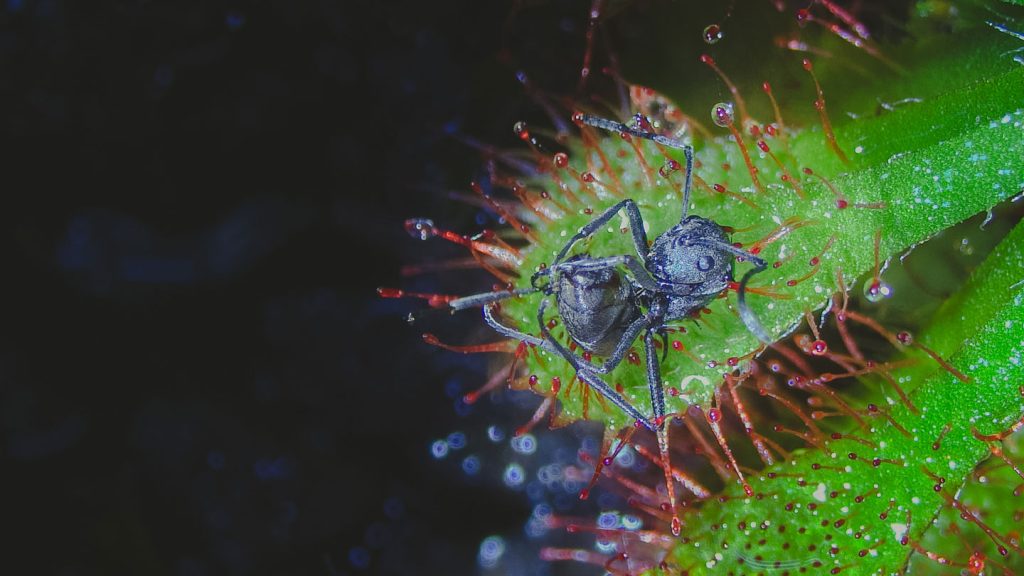Researchers have discovered a new danger for insects in the plant world: an acid-loving fungus that assists carnivorous plants in digesting prey. This fungus, called Acrodontium crateriforme, produces additional enzymes and increases the acidity in the leaf’s environment, which helps in breaking down prey more efficiently. This partnership between the fungus and the plant creates a synergistic effect, allowing for faster prey decomposition and increased nutrient absorption by the plant. This study reshapes the understanding of plant carnivory and opens up avenues for exploring other carnivorous plants and their potential microbial helpers.
The study, conducted by Isheng Jason Tsai and colleagues at Academia Sinica in Taipei, Taiwan, focused on spoon-leaved sundews (Drosera spatulata) found in regions including Taiwan. They found a diverse assortment of bacteria and fungi living on the plants, with A. crateriforme being the most abundant. When the researchers sprinkled powdered ants on the plants to simulate prey capture, they found that the fungus reduced digestion time by roughly one-fifth, indicating its role in aiding the breakdown of prey. Inoculating sundew plants with the fungus in a lab setting reduced the time it took them to break down insect matter from 92 hours to 73 hours.
The discovery of A. crateriforme on sundew plants across three continents suggests an ancient relationship between the fungus and the plant species. Additionally, the fungus was found to grow on other Drosera species in the United Kingdom, as well as purple pitcher plants (Sarracenia purpurea) from the United States. This widespread association between the fungus and carnivorous plants indicates a more widespread evolutionary strategy in botanical carnivory, showcasing the intricate relationships between plants and microbial helpers in the natural world.
This research adds to previous studies that have shown how bacteria living in the mucilage of carnivorous plants like pitcher plants and bladderworts can aid in digestion. By confirming that a specific microbe, such as A. crateriforme, supports digestion in carnivorous plants, scientists are reshaping the understanding of how these plants function and interact with their surroundings. This new finding highlights the importance of microbial communities in the digestive processes of plants and opens up new possibilities for future research in the field of plant carnivory and symbiotic relationships with microbes.
The presence of A. crateriforme on sundew plants and other carnivorous plant species suggests a widespread evolutionary strategy in which these plants rely on microbial helpers for efficient digestion of prey. The discovery of this acid-loving fungus’s role in assisting sundew plants in breaking down prey sheds light on the complex relationships that exist in the natural world. By studying these interactions between plants and microbes, scientists can gain a deeper understanding of how carnivorous plants have evolved and adapted to thrive in their environments, ultimately enhancing our knowledge of the intricate web of life on Earth.


